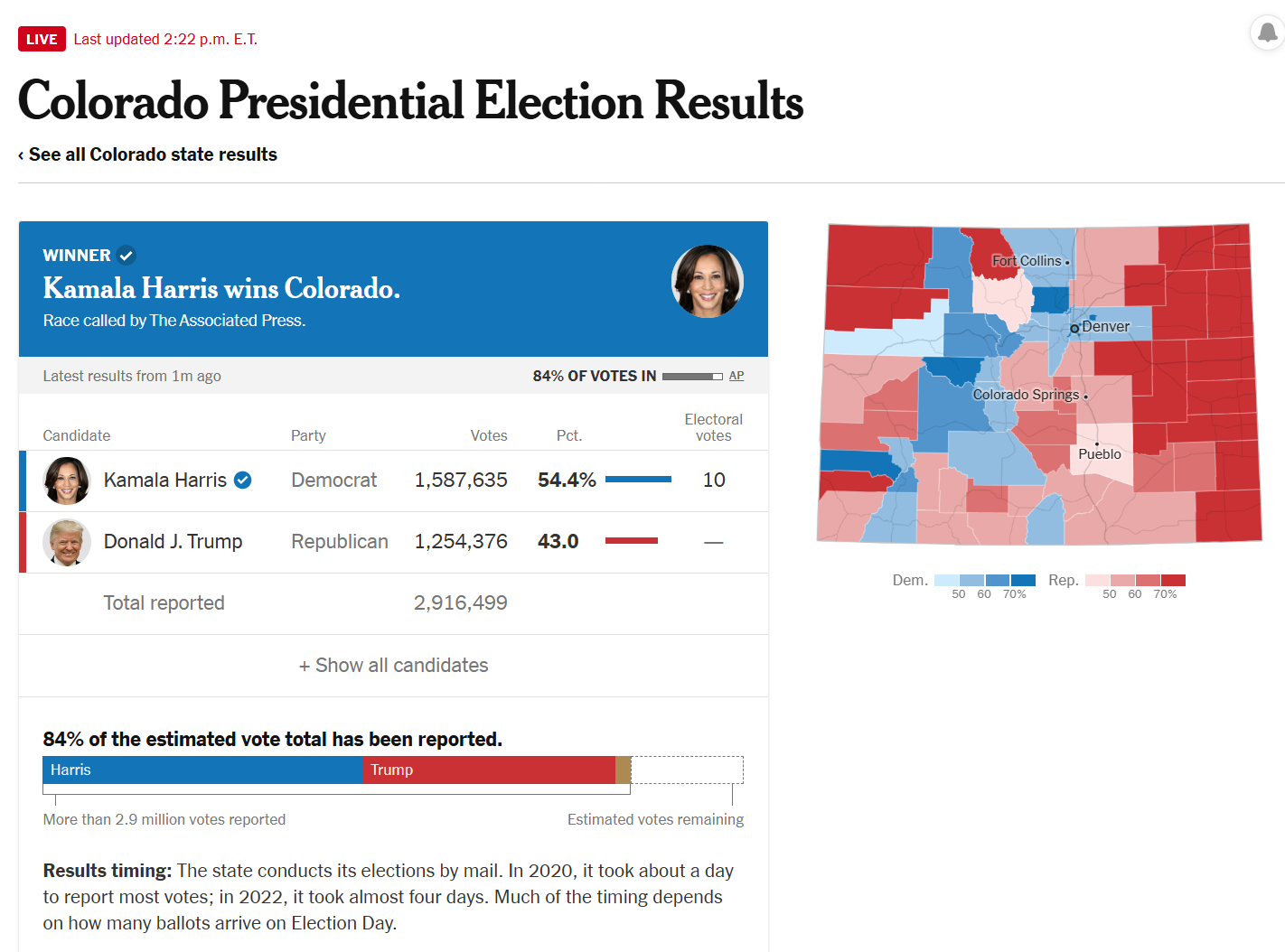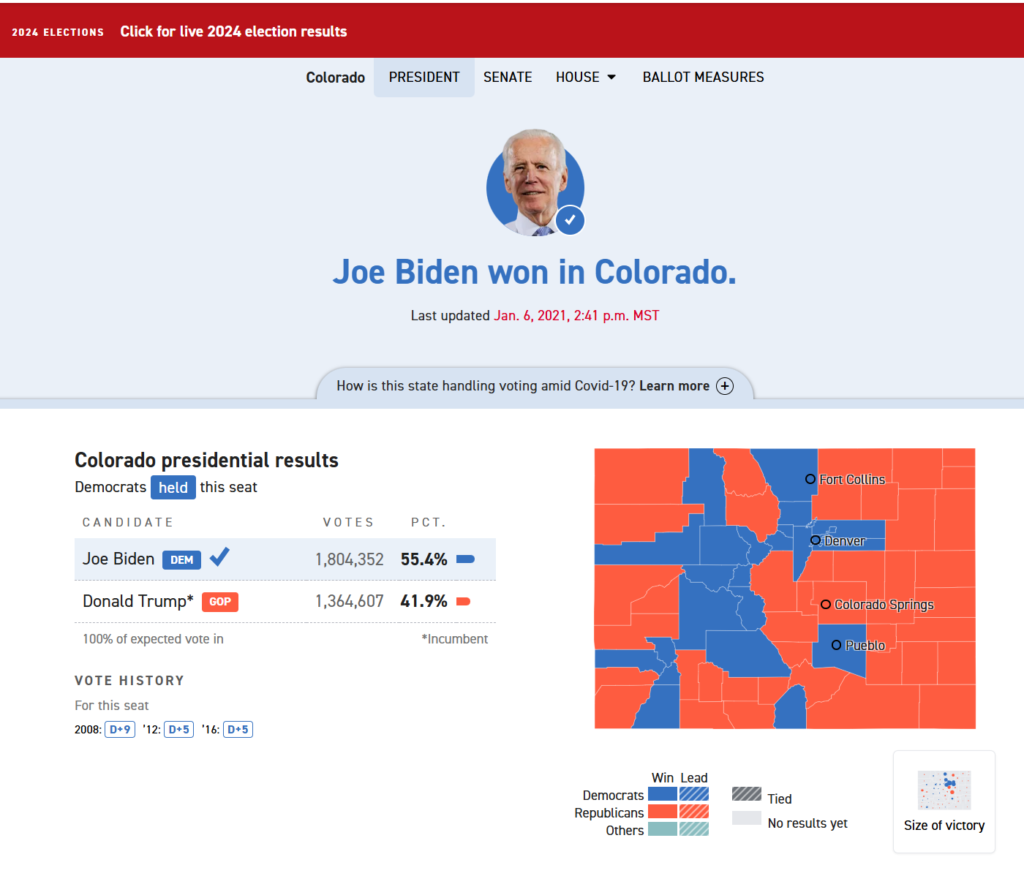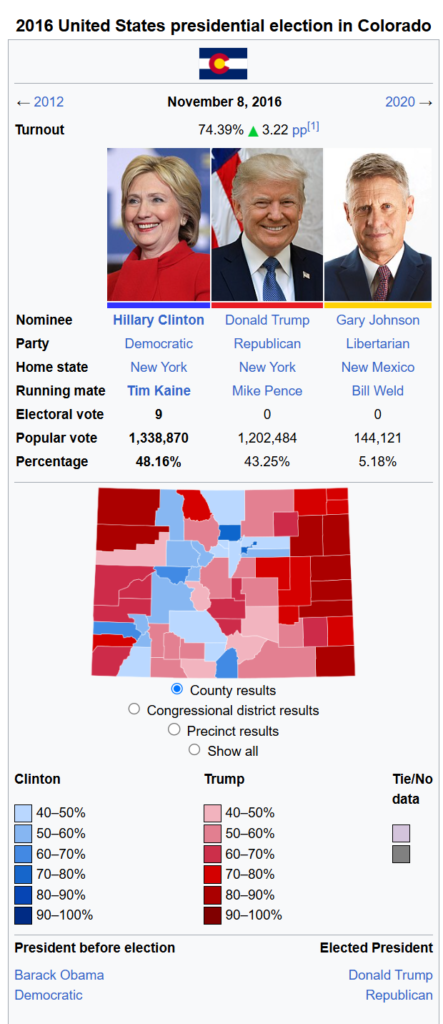The numbers between from 2024, 2020, and 2016 don’t track. A million more total votes in 2024 than 2016?
No effing way.
ELECTION INTEGRITY: Colorado—unlike any other state in the union—saw an unmistakable leftward shift in voting patterns in the most recent elections. The timing, juxtaposed against a broader national trend of rightward-leaning shifts, raises some pertinent questions. Why did… pic.twitter.com/VkW3ku3av7
— @amuse (@amuse) November 8, 2024



ELECTION INTEGRITY: Colorado—unlike any other state in the union—saw an unmistakable leftward shift in voting patterns in the most recent elections. The timing, juxtaposed against a broader national trend of rightward-leaning shifts, raises some pertinent questions. Why did Colorado buck the trend so decisively, and at such an unusual time? This is the same Colorado that, under Secretary of State Jena Griswold, experienced a catastrophic breach of election security. Colorado’s voting machine BIOS passwords were posted online for anyone to access months before the election. The breach under Griswold’s watch was unprecedented, and yet it seemingly had no repercussions or impact, at least not officially. But with Colorado being the only state to record a notable shift to the left, can one truly ignore the possible connection? Four full months of exposed BIOS passwords in an environment of deeply polarized and contested elections is not a mere technical error—it is an open door, a flashing invitation for interference, be it from internal actors or foreign opportunists. What are we to conclude when the only state with such an electoral shift is also the state that allowed its voting systems to be compromised with such brazen carelessness? In any honest reckoning, the coincidence demands scrutiny. It challenges our complacency. It should prompt questions about whether Colorado’s machines were tampered with, and whether the state’s voters were served with integrity. The leftward shift that Colorado experienced should not be viewed in isolation from the catastrophic security failures under Griswold. It’s not unreasonable to ask whether these two phenomena—an inexplicable, solitary voting trend and a colossal voting system breach—might be related. What distinguishes Colorado isn’t just the failed competence of those tasked to protect the integrity of elections, but also a refusal to even entertain the notion of accountability. Griswold’s office, in the wake of this catastrophic failure, did nothing to restore trust in the election system. Instead, the officials in charge scrambled to obscure, to evade, and to reassure the public that all was well. It may be impossible to ever fully know what happened within those four months of open access. And perhaps that’s the whole point. Colorado’s convenient leftward shift amid unprecedented voting system vulnerabilities should make every American question just how secure our elections really are—and whether those in charge have any genuine intention of safeguarding them. The lone leftward drift of Colorado isn’t a badge of electoral uniqueness; it is a red flag. It’s a warning of what happens when election integrity becomes an afterthought, and when those responsible refuse to answer for their failures. It is time for paper ballots and one day, in-person voting. h/t